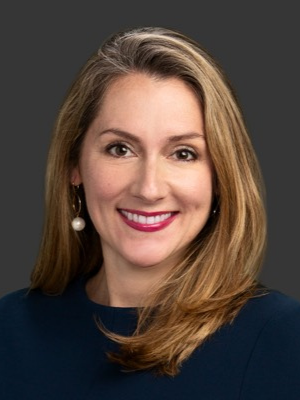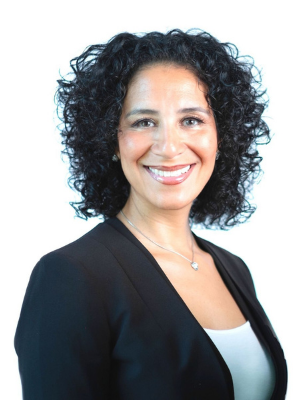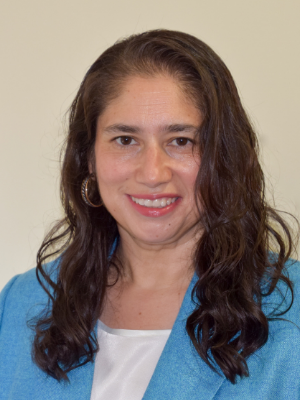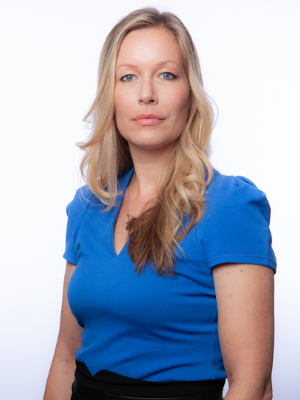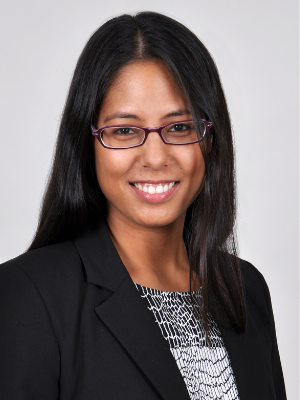 “Training is very heavily criticized for its return on investment. Well, why is that?” asks Laura Ansloos. “What happens when the whole picture is not taken into account before training is deemed to be the answer to the problem? What may be working against training within an organization? What are the other forces at play within organizations that drive behavior change, or impact on individual’s performance?”
“Training is very heavily criticized for its return on investment. Well, why is that?” asks Laura Ansloos. “What happens when the whole picture is not taken into account before training is deemed to be the answer to the problem? What may be working against training within an organization? What are the other forces at play within organizations that drive behavior change, or impact on individual’s performance?”
She continues, “Going down the trajectory of organizational psychology has given me the words to articulate these matters with my clients, help them see the plurality of some of the issues they are dealing with and to find ways to move forward.”
Ansloos talks about her passion for behavioral economics & organizational psychology, how the training issue is often a failure to diagnose the problem and why L&D truly belongs both at the leadership table and in problem-solving teams.
Reclaiming Her Own Trajectory
As often happens when you step on a certain track, the track can begin to take you along it—until you find yourself at the top of a trajectory you never set out for.
With a degree in biochemistry from McMaster University in Canada, Ansloos did not identify with the idea she held of being a scientist in a lab, so ended up pursuing medical communications, a specialist service within public relations and advertising that works with mostly pharmaceutical clients. She quickly fell into client management, gaining higher profile roles and bigger clients in little time and moving up through the business development and commercial leadership route.
Ansloos moved towards the e-learning industry by joining a leading learning solutions firm, Epic, where she managed multi-sector client portfolios such as Civil Service in the UK, Burberry, Diageo, Barclays Bank, EasyJet, and British Airways, helping them transform their internal learning & development offerings towards digital. Soon enough, and amidst a merger, she was Managing Director EMEA of LEO Learning.
“I reached what would be considered a pinnacle if you’re working in a client services career trajectory. But I didn’t love it,” she admits. “I remember always saying that I never want to be responsible for the money, but that’s the trust you build. That’s how it went and where it went to.”
Ansloos wanted to gravitate towards her passion of being more “hands on” with problem-solving around her client’s people and performance matters, and further away from managing the provision of services to clients. She’s been making progress in that direction by leading consulting on workplace learning and performance strategy with Ogilvy Health, heading up the Ogilvy Health UK company apio, and is currently attaining her Masters in Organizational Psychology at Birkbeck, University of London to go further.
Through the depth and breadth of her experiences in management, she’s developed an acute, insightful overview of why training is often set up to fail. Now she seeks to bridge her management and leadership background with adult learning, behavioral science and psychology to create meaningful behavior change intervention in the workplace.
The Missing Diagnostic: Is It Really a Training Problem?
As a new manager with a team of 25 direct reports, reading The Five Dysfunctions of a Team nearly 15 years ago is what first ignited Ansloos’ fascination in understanding behavioral motivation, the psychology of management and leading change. She then became interested in behavioral economics, with popular books like Thinking, Fast and Slow, Predictably Irrational and also Inside the Nudge Unit, which explores how the UK government uses behavioral economics.
“I was reading all this stuff and thinking, why don’t we use this in organizations? Why is this thinking not there?” she wondered, which led her to another question: “Why does training have such a bad reputation? Why is it so often ineffective?”
Ansloos points to the value of using behavioral science insights to inform interventions in individual performance or behavior change in the workplace. For example, we are more motivated by the fear of loss, due to its emotional impact, than we are by gain (prospect theory). We also have a tendency to do as others do, particularly if we identify with them (so called social norms). Armed with these sorts of insights, one can expose hidden opportunities to influence behavior change in the workplace.
For example, she was asked by a client to help provide an educational piece to their leadership team on the value of strategic partnerships. They needed their leadership’s advocacy and support, otherwise the rest of the organization would not understand why partnerships were needed. The challenge was that those partnerships were not yet delivering immediate or tangible commercial gains and came with risk, and so their value was being questioned and “ears and minds of leaders were closing”.
Ultimately, Ansloos and her team used psychology and behavioral science to frame interventions. They set out a value proposition for partnerships using a loss aversion frame: without partnerships, the future leadership position of the organization as an innovator was at risk. They used social/occupational norms and commitment devices to encourage leaders to go public to their peers and share their personal story on what convinced them to “give partnerships a chance to shine” and ask their peers to do the same. While the brief started with an educational request, the team ultimately intervened with psychology to reframe partnerships not as a long term gain but as a way to avoid material losses, and ensured that giving partnerships a chance was “the done thing” among leaders.
Bridging the Gap
Observing that small changes play a huge role in creating significant performance results, Ansloos sees more opportunity to bridge the gap between psychology and management: “Because I’m not an academic, I have that opportunity to help bridge the gap, because it is missing and it’s a very under-tapped area in organizations. We need that expertise of organizational psychology to help widen the lens of the relationship between people and work.”
The big “miss” she sees in L&D is the too often absence of diagnostics around the problem itself. Often organizations leap frog to training as a reflex. But if the issue is not a training (capability) problem to begin with, training will not solve anything.
Ansloos loves the simple and academically grounded COM-B model that says behavior results from capability, opportunity and motivation: “Using this kind of diagnostic lens you say, ‘this is the problem that the business is having, but we first need to see if it’s a capability issue, an opportunity issue or a motivational issue – and then design our interventions accordingly.”
She gives the example of R&D lab scientists in a pharmaceutical company who weren’t filling out timesheets that financial regulators required: “The organization just wanted to implement training on the time sheeting system. But by taking a behavioral lens, we helped them to understand that they didn’t have a knowledge deficit issue that scientists didn’t know how to timesheet. They had a motivational deficit because R&D scientists don’t see it as their job to be commercial entities.”
Rather than training on timesheet completion, which would never have helped, they did psychology-based nudge interventions, like making the task both simple and social, so that scientists witnessed each other doing it and followed along, using the social notion of the ‘in-group’.
“A progressive organization values and understands the mindset of always learning and has the ability to evaluate its systems, its own psychology, its policies, wider society and the expectations it operates within,” observes Ansloos. “It can diagnose what its issues are and where and when training or learning strategy is needed, and what other behavioral interventions may be best required to help solve problems, make better decisions or fulfill individual potential.”
L&D Belongs Across & Within Teams
“Having been in management roles for so long, I know how important it is to get these things right and how much it can bring to the table, so I really believe in this work,” says Ansloos. “I can explain things in a way that is easier to understand and relatable.”
She has been honing her ability to question accepted knowledge, not just relying on status quo but being willing to step back and ask ‘why are we doing it this way’.
This kind of critical thinking is often missing in organizations— this fear to challenge, or to ask a question in the spirit of actually trying to get to a better place,” says Ansloos.
She feels that L&D suffers from being a subset of Human Resources, which is female-dominated but with far too few seats at the leadership table. This is why the notion of the Chief Learning Officer comes in: “Learning is so central for individuals and the organization. Why isn’t it given a more strategic or louder voice in the leadership part of business?”
Ansloos notes HR is perceived as being less strategically tied to business or adding less value, so L&D gets these associations too: “But re-skilling is the number one priority for most CEOs or leaders at the moment. Well, that is learning and development.”
In her years of experience as a learning consultant, she has been surprised to find she is only working with the marketing teams on the client side, with a limited base of learning as extensive as knowing what their predecessor did.
“L&D should be across and integrated into all functional areas of a business. It shouldn’t be departmentalized,” notes Ansloos. “Training is often the first thing to be blamed, so it needs a competency and understanding that is centered and situated within teams that have a broader understanding of when, why and how training is effective.”
Asking Why
With one year to go in her organizational psychology degree, a wife and two children of seven and five years old, Ansloos keeps very busy these days.
In her children, she witnesses the ability to center themselves, question why things are how they are and challenge assumptions—and she plans to keep on encouraging it and learning from them, too.
By Aimee Hansen

